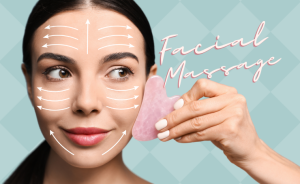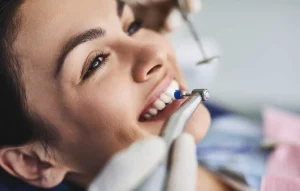Hair loss, also known as alopecia, is a condition characterized by the partial or complete loss of hair from the scalp or other parts of the body where hair normally grows. It can occur in both men and women and may be temporary or permanent, depending on the underlying cause.
Hair loss can have various causes, including:
Androgenetic Alopecia: This hereditary condition, often referred to as male or female pattern baldness, results in gradual hair thinning and eventual hair loss.
Telogen Effluvium: Triggered by factors like stress, illness, hormonal changes, or medications, this condition disrupts the hair growth cycle, leading to temporary hair loss.
Alopecia Areata: An autoimmune condition where the immune system mistakenly attacks the hair follicles, causing patchy hair loss. Explore detailed treatments for alopecia areata.
Medical Conditions: Thyroid disorders, scalp infections, and nutritional deficiencies can contribute to hair loss.
Hairstyling and Traction Alopecia: Tight hairstyles can cause gradual hair loss over time. Learn more about traction alopecia and how to prevent it.
Medical Treatments: Treatments like chemotherapy can cause temporary hair loss.
Treatment options vary depending on the underlying cause and may include medications, topical treatments, hormone therapy, hair transplant surgery, or cosmetic solutions.

Types of Hair Loss
Androgenetic Alopecia
Androgenetic alopecia, known as male pattern baldness or female pattern hair loss, is the most common form of hair loss. Genetic predisposition, dihydrotestosterone (DHT), and follicle sensitivity to DHT contribute to gradual hair thinning and hair loss.
Alopecia Areata
Alopecia areata is an autoimmune disorder where the immune system attacks hair follicles, leading to inflammation and patchy hair loss.
Telogen Effluvium
Telogen effluvium results from a larger number of hair follicles prematurely entering the resting phase, causing temporary hair thinning. Stress, hormonal changes, illness, and nutritional deficiencies are common triggers.
Traction Alopecia
Caused by excessive pulling on the hair from tight hairstyles, traction alopecia can lead to hair breakage and gradual hair loss, particularly along the hairline.
Trichotillomania
Trichotillomania is a psychological disorder involving the compulsive urge to pull out one’s hair, leading to noticeable bald patches.
Scarring Alopecia
Scarring alopecia results from the destruction of hair follicles due to autoimmune disorders, infections, or trauma, causing permanent hair loss.

Types of Hair Loss Treatments
There are various types of hair loss treatments available, depending on the underlying cause and the specific needs of the individual. Here are some common types of hair loss treatment:
Medications
Minoxidil: An over-the-counter topical solution promoting hair growth.
Finasteride: A prescription oral medication used to treat male pattern baldness.
Prescription Treatments
Corticosteroids: Used for alopecia areata and other inflammatory conditions.
Anti-androgens: Medications like spironolactone for women with androgenetic alopecia.
Hair Transplantation
A surgical procedure involving the transfer of hair follicles from a donor area to thinning or bald spots.
Low-Level Laser Therapy (LLLT)
Non-invasive laser treatments that stimulate hair growth by enhancing blood flow to hair follicles.
Platelet-Rich Plasma (PRP) Therapy
Involves injecting concentrated platelets from the patient’s own blood into the scalp to stimulate hair growth.
Scalp Micropigmentation (SMP)
A cosmetic technique using tattooing to create the appearance of fuller hair.
Hair Loss Shampoos
While shampoos are not a standalone solution for severe hair loss, they can support scalp health. Look for:
Minoxidil Shampoos: Deliver minoxidil directly to the scalp.
DHT-Blocking Shampoos: May help inhibit the hormone linked to pattern baldness.
Nourishing and Strengthening Shampoos: Contain vitamins, proteins, and botanical extracts.
Antifungal Shampoos: Address fungal scalp infections that could contribute to hair loss.
Have Question?Get Free Consultation!Just Submit Your Details & We'll Be In Touch Shortly.
Consult a healthcare professional before choosing a shampoo to ensure it aligns with your specific needs.
Best Shampoos for Hair Loss
The best shampoo depends on your specific hair loss cause, but commonly recommended options include:
Minoxidil-based shampoos
Ketoconazole shampoos (for their antifungal and anti-inflammatory properties)
Biotin-enriched shampoos (to support hair strength)
Caffeine-infused shampoos (to stimulate hair follicles)
Remember, individual results may vary. It’s best to combine shampoo treatments with a broader care plan that addresses underlying conditions.










